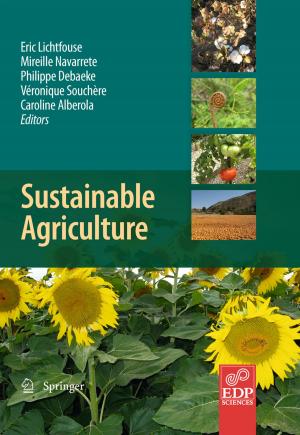Ecological Restoration of Aquatic and Semi-Aquatic Ecosystems in the Netherlands (NW Europe)
Nonfiction, Science & Nature, Science, Biological Sciences, Ecology, Nature, Environment, Environmental Conservation & Protection| Author: | ISBN: | 9789401713351 | |
| Publisher: | Springer Netherlands | Publication: | March 14, 2013 |
| Imprint: | Springer | Language: | English |
| Author: | |
| ISBN: | 9789401713351 |
| Publisher: | Springer Netherlands |
| Publication: | March 14, 2013 |
| Imprint: | Springer |
| Language: | English |
This work presents the state of the art of aquatic and semi-aquatic ecological restoration projects in The Netherlands. Starting from the conceptual basis of restoration ecology, the successes and failures of hundreds of restoration projects are described. Numerous successful projects are mentioned. In general ecological restoration endeavours greatly benefit from the progressive experience achieved in the course of the years. Failures mainly occur through insufficient application of physical, chemical or ecological principles. Spontaneous colonization by plants and animals, following habitat reconstruction, is preferred. However, sometimes the re-introduction of keystone species (e.g. eelgrass, salmon, beaver) is necessary in case the potential habitats are isolated or fragmented, or if a seed bank is lacking, thus not allowing viable populations to develop. Re-introducing traditional management techniques (e.g. mowing without fertilization, low intensity grazing) is important to rehabilitate the semi-natural and cultural landscapes that are so characteristic for The Netherlands.
This work presents the state of the art of aquatic and semi-aquatic ecological restoration projects in The Netherlands. Starting from the conceptual basis of restoration ecology, the successes and failures of hundreds of restoration projects are described. Numerous successful projects are mentioned. In general ecological restoration endeavours greatly benefit from the progressive experience achieved in the course of the years. Failures mainly occur through insufficient application of physical, chemical or ecological principles. Spontaneous colonization by plants and animals, following habitat reconstruction, is preferred. However, sometimes the re-introduction of keystone species (e.g. eelgrass, salmon, beaver) is necessary in case the potential habitats are isolated or fragmented, or if a seed bank is lacking, thus not allowing viable populations to develop. Re-introducing traditional management techniques (e.g. mowing without fertilization, low intensity grazing) is important to rehabilitate the semi-natural and cultural landscapes that are so characteristic for The Netherlands.















